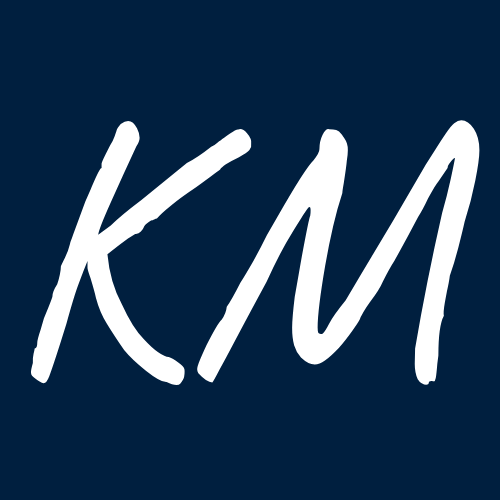TCL#32: Legacy Industries Hedge Tomorrow
Established players bet on the technologies that may replace them.
Old industries are placing new bets. From petrochemical giants launching venture funds to pharmaceutical companies chasing breakthrough therapies, established players are hedging against obsolescence. The message is clear: adapt or be left behind.
To receive these updates weekly in your inbox, subscribe below. The future rarely announces itself, but patterns do.
Venture Capital
Mitsui Chemicals, Japan's petrochemical stalwart, has unveiled its second venture capital fund called '321Catalyst'. This fund builds on the success of their first fund, '321FORCE', which was launched in 2022 with Global Brain. The mission of the new fund is to accelerate the building of global innovation partnerships and the launching of new products and businesses.
In order to manage the fund, Mitsui Chemicals established a wholly-owned subsidiary named 321Catalyst Ventures Inc. located in San Jose, California. 321Catalyst has a fund size of $60 million and a lifespan of 10 years. The fund will close on seed and all stages of investment, targeting startups across various industries, including healthcare, mobility, and sustainability.
Meanwhile, China's state-owned Sinopec has established a venture capital fund focused on hydrogen energy with an initial size of 5 billion yuan (~$690 million). This fund is the largest in China dedicated to the hydrogen value chain. The fund aims to support early-stage investments and the incubation of key materials, core equipment, and proprietary technologies in the hydrogen sector. Sinopec Private Equity Fund Management Co., a subsidiary of Sinopec Capital Co., will manage the fund.
The timing is telling. As governments worldwide pour subsidies into clean energy infrastructure, industrial giants are hedging their fossil fuel legacies by backing the technologies that may eventually replace them. For these corporate venture arms, the calculus is straightforward: invest now in tomorrow's energy system, or risk obsolescence in the transition.
Biotech
RNatives, a Finnish biotechnology company focusing on RNA-based therapies, has raised an additional €1.4 million (~$1.6 million) in seed financing. This brings their total seed funding to €2.8 million. The funds will be used to expand the company's RNA-based gene regulating platform, RNAIntelTM, which specifically targets non-coding RNAs (genetic material that does not translate into proteins but plays crucial regulatory roles in cellular function). The funding round underscores growing investor appetite for precision medicine technologies that harness the body's own molecular machinery to treat disease.
Oncology
- Merck & Co. and Daiichi Sankyo have withdrawn their application for FDA approval. The application was for an antibody-drug conjugate (ADC) developed through their collaboration. The withdrawal follows the failure of a late-stage clinical trial focused on lung cancer. The ADC in question was expected to be a key component of the companies' oncology portfolio, which includes multiple ADC clinical trials across 15 types of cancer.
- ProteinQure, based in Toronto, Canada, has closed an $11 million Series A financing round, which brings its total funding to $16 million across Seed and Series A rounds. The funding will support the initiation of their first clinical trial for PQ203, an AI-designed peptide-drug conjugate targeting triple-negative breast cancer (TNBC). PQ203 is designed to target the sortilin receptor, which is overexpressed in many solid tumors, including TNBC. The multicenter phase 1 clinical trial for PQ203 is expected to begin in the third quarter of 2025, enrolling 70-100 patients. Major cancer centers involved in the trial include Princess Margaret Cancer Centre, MD Anderson Cancer Center, and Yale Cancer Center.
Pharma
The U.S. FDA has approved Alcon's TRYPTYR (acoltremon ophthalmic solution) 0.003% for treating the signs and symptoms of Dry Eye Disease (DED). TRYPTYR is the first FDA-approved treatment that targets TRPM8 receptors, which stimulates corneal sensory nerves to increase natural tear production. Alcon plans to launch TRYPTYR in the U.S. in the thirst quarter of 2025 and introduce it to other markets later. This is Alcon's first FDA approval for a prescription pharmaceutical since splitting from Novartis six years ago. The global dry eye treatment market continues expanding as populations age and screen time proliferates.
Recycling
The man behind the Resolute Desk has rescinded a $375 million federal investment for Eastman Chemical's molecular recycling project in Longview, Texas. This was part of a larger cancellation of $3.7 billion in clean energy projects. Other significant cancellations include $331 million for Exxon Mobil's hydrogen project, $170 million for Kraft Heinz's clean energy initiatives, $500 million for Heidelberg Materials' low-carbon cement project, and $270 million for two carbon capture projects linked to Calpine Corp.

